- the presentation covers the development story of the Far Cry shader system
- shows how over multiple games, the architecture was iteratively improved to solve the D3D12 transitions
- focuses on how the PSO design was approached by making all PSO information known during build time
- presents techniques to reduce PSO hitching by skipping draw calls, introducing optional variations, and allowing fallbacks

- the talk covers how the author designed a new rendering architecture aimed at mobile hardware
- presents how an iterative API Design was utilized
- covering the resulting solution and reasons for the design decisions
- much in-depth advice to consider for the best performance in different mobile GPUs
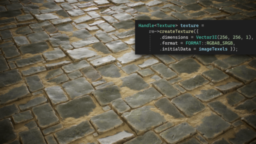
- the article presents how a LUT (Look Up Table) can be used to apply a color transformation to convert a daytime scene into a nighttime
- presents how to express a color transformation into a texture and how to apply it from a shader
- discusses implementation considerations and how to reduce color banding

- slides covering Screen Space Indirect Lighting with Visibility Bitmask
- presents how bitmasks are used to track visibility along the visibility horizon
- show how this allows you to handle objects with thickness better
- additionally shows performance and image results
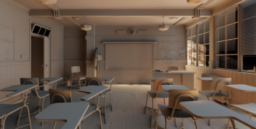
- the blog post covers a high-level overview of topics covering Diablo IV graphics techniques
- discusses the guiding principles, the interaction with tech art
- shows how HDR enables an improvement in visual quality
- additionally provides an overview of resolution/refresh rates on consoles as well as graphics options
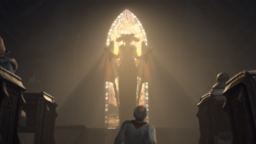
- the presentation presents how to convert the D3D12 shader for use with metal
- presents a shader converter tool that converts DXIL into metal shader IR
- this tool also supports the conversion of tesselation shaders into mesh shaders
- additionally presents performance pitfalls and advice to bind resources to the pipeline efficiently
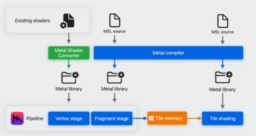
- the 2-hour interview discusses the history of the development of Graphics APIs
- discusses the origins of APIs, how OpenGl and Direct3D came to be
- tradeoffs, design decisions, and many insights into the history of computer graphics

- the keynote presents an overview of the state of the art in neural rendering
- covering image reconstruction, texture compression, mesh simplification, and others
- presents a look at what might be coming next in research and open areas for further development
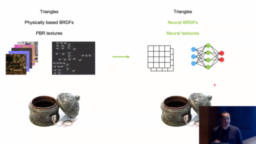
Thanks to Marius Horga for support of this series.
Would you like to see your name here too? Become a Patreon of this series.